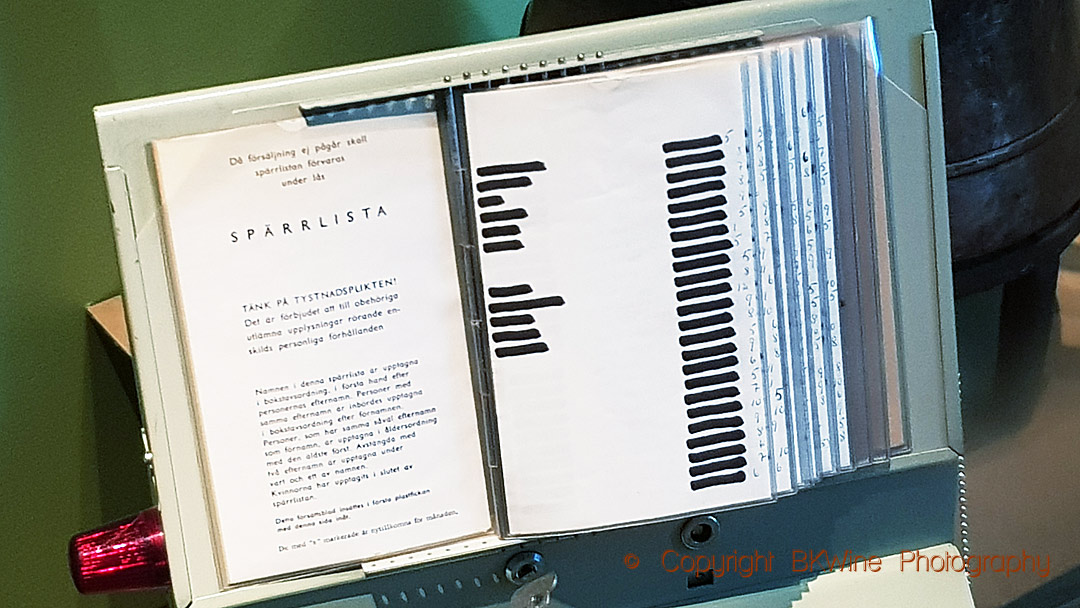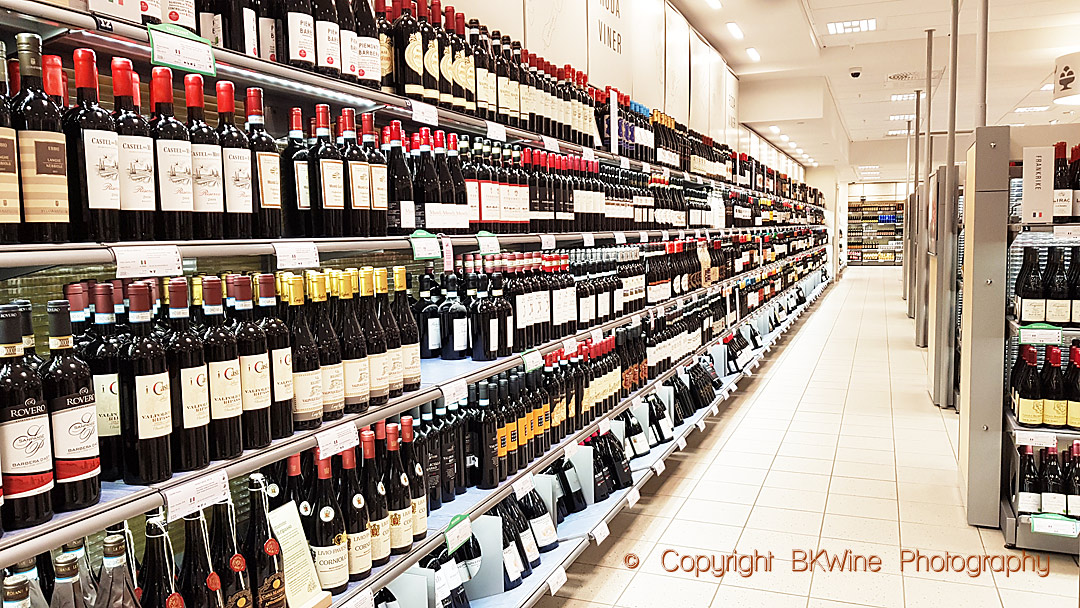On my bedside table is a brick-size book with the title “Wine & Spirits – From Politics to Market” (”Vin & Sprit – Från Politik till Marknad”). On almost 450 pages, the author Hans De Geer describes Swedish alcohol policy between 1917 and 2008. Got a tip from Per Karlsson to read this and it works well as a sleep aid in the evenings you need that kind of thing… (*)
But that brings my thoughts to the peculiar, not to say absurd approach we in Sweden have to alcohol. Yes, I know that everything is based on Swedes’ rampant drinking in the 18th century and that we who live in the “white liquor belt” cannot handle strong drinks in the same way as our neighbours in the brown (beer) and the red (wine) belts in Europe.

But does it really have to be such a difference in the 2000s? That we cannot buy our meal drinks together with the food, if it is more than 3.5% by volume. That we are not allowed to go to a winery and buy some bottles to bring home as memory. That we are not allowed to show a glass, a hand, a corkscrew or even a checkered tablecloth in newspaper ads for wine!
For all that is prohibited by the Swedish alcohol law. We absolutely must not let our 18-year-old son or daughter taste a glass of wine at home for dinner, but on the other hand, they are allowed to go to the pub and order even if they are not 20 years old. Swedish alcohol legislation is one of the most illogical and otherworldly that exists.
The explanation for all this is of course to be found in the Riksdag (parliament), Sweden’s highest decision-making assembly. The sobriety group in the parliament was formed as early as 1885 and almost all political parties have been represented there. Their power, however, has gone in waves. Small attempts at liberalisation have been made. Some have failed, such as a trial selling medium-strength beer and even strong beer in grocery stores. Others have gone through; the abolition of the rationing book in 1955 (all Swedes had to carry a rationing book in which all alcohol purchases were noted) may well be considered the most important. But even minor reforms such as Saturday opening of the monopoly stores, home delivery and allowing distance sales (mainly internet sales originating in other EU countries into Sweden) have partly changed the view of alcohol. But not enough I think!

Interestingly, when freer rules have been proposed, such as alcohol shops opening on Saturdays, “experts” within temperance movement and their associates have always warned of the consequences. So many more would die from beatings, so many drunk driving and so on. Health care would suffer from a wave of alcohol-related illnesses. However, none of this has happened! Instead, the consumption of alcohol, especially among young people, has decreased and older people are drinking wine rather than liquor, as we have had a tiny bit of liberalisation. The only public health problem that is increasing, not least now in quarantine times, is the consumption of bag-in-box wines. These that are cherished so much by our liquor monopoly.
I also have my eye out on another subject. Namely, the role of media in alcohol policy. While they are happy to receive full-page ads for wine and leave space in their columns for reviews and buying tips, they have a different view editorially. Alcohol is something shady!
Every now and then we can read about cases of “entertainment” in public and private organisations, where alcohol has played a role. Just a few weeks ago, Helsingborgs Dagblad, a Swedish daily paper, wrote that the real-estate company Ängelholmshem had let “taxpayers pay an alcohol bill of 8,500 euro”! This was over three years, ie around 2,800 euro per year, which was used for traditional entertainment, staff parties, etc. This “scandal” led to the reporting by the examining fourth estate for several days. The culmination came when they managed to dig up that the company’s auditor had received a bottle of champagne when he turned 60! Wow, this fat bribe would be sure to get a clean audit report in the future, right ?! And it is always “the taxpayers who foot the bill”. (Do the taxpayers not also pay salaries, rents and other costs for their real estate company?)

This view is of course based on jealousy, but also on the uncritical acceptance of the claim that “alcohol is not a product like others”. Do you recognize it? It is not least used when arguing against cellar-door sales, which is allowed in all other EU countries.
On the contrary, I would say the opposite. Alcohol is a product like others. To be used primarily in social life and as accompaniment to food. Not as a drug and intoxicant. Alcohol-related damages in society is society’s fault, not alcohol’s. Excessive consumption of sugar, cream and fat is also dangerous, can even lead to death. But most people still manage to live more or less healthy lives.
We must de-dramatise our relationship with alcohol. Encourage responsible use of wine and beer where people are genuinely interested in what they drink and not just the percentage of alcohol.
We should make substantial efforts to fight illegal sales to children and adolescents and eventually introduce licensed stores that can sell wine, beer and perhaps in the long run also spirits.
Let our wineries and microbreweries sell their products to visitors. Grow up and become like the rest of Europe!
So maybe one day Hans De Geer can write the final chapter on Wine & Spirits where the retail monopoly is finally abolished. It would be a real “Happy Ending”!
(*) Hans De Geer’s book is actually very interesting and includes the success of Absolut Vodka and the sale of V&S (the Swedish ex-monopoly importer) to Pernod Ricard. Not just a sleeping pill…
Carl-Magnus Hedin has worked with communications including with his own agency. Then became winegrower, and now wine importer.










